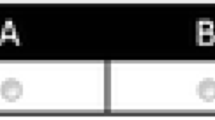Abstract
Summary
The purpost of this research was to determine whether people devalue future heahh gains differently from future health losses. 108 subjects in various states of health were randomised to groups that rated their preference for a hypothetical health gain or loss of variable duration and delay, in the condition ofanhritis. Direction and duration of the hYPOthetical future health change had an interactive effect on time preference (p < 0.00 1). For the health gain, devaluation due to delay was consistent across durations. For the health loss, devaluation depended on duration; the long-duration loss was devalued with delay while the fleeting loss was inflated. These findings cast doubt on the assumptions of positive time preference and constant rate discounting that underlie the classical model of discounting. They provide suppon for a theory of intenemporal choice which posits that vivid, fleeting, future events engender ‘anticipation utility’ which attenuates positive time preference. OUT findings suggest that standard practices fOT discounting future health outcomes in economic evaluations of arthritis and possibly other conditions may need to be re-examined.
Similar content being viewed by others
References
Benzion U, Rappaport A, Yagil J. Discount rates inferred from decisions: an experimental study. Management Science 35: 284, 1989
Christensen-Szalanski JJJ. Discount functions and the measurement of patients’ values: women’s decisions durina childbirth. Medical Decision Making 4: 47–58, 1984
ChristenSen-szalanski JJJ, Northcraft GB. Patient compliance behavior: the: effects of time on patients’ values of treatment regimens. Social Science and Medicine 21: 263–273, 1985
Coyle D, Tolley K. Discounting of health benefits in the pharmaoeconomic analysis of drugs therapist: an issue for debate? PharmacoEconomics 2: 153–162, 1992
Froberg DG, Kane RL. MethodolOgY for measuring health-state preferences I: measurement strategies. Journal of Cinical Epidemiology 42: 345–354, 1989a
Frobcrg DG, Kane RL. Methodology for measuring health state preferences HI: population and context effects. Journal of Clinical Epidemiology 42: 585–592, 1989b
Horowitz JK, Carson RT. Discounting statistical lives. Journal of Risk and Uncertainty 1: 403–413, 1990
Kahneman O, Tversky A. Prospect theory: an analysis of decisions under risk. Econormetrica 47: 263–291, 1979
Katz DA, Wekh HG. Discounting in oost-effectiveness analysis of healthcare programmes. PharmacoEconomics 3: 276–28S, 1991
Keppel G. Dcsion and analysis: a researchu’s handbook, 2nd ed. Prtnticc-HallInc. EnaJcwood Oiffs. Ne July, 1982
Kirk RE. Experimental design: procedures for the: bchavioql sciences. 2nd ed., Brooksj CoIc Publishins Company. Monterey,CA. 1952
Lipscomb J. Time preference for health in costeffectiveness analysis. Medical Care 21: S233–253, 1989
Loewenstein G. Anticipation and the va luation of delayed consumption. The Economic Journal 97: 666–684, 1981
MacKeigan LD, Larson LN. FIeming effects on utility for adverse Chulth outcomes. Unpublished manuscript. The Ohio State University. Columbus, Ohio. 1981
McNeil BJ, Weichsalbaum R, Pauker SG. Fallacy of the fivCoyear survival in luna cancer. New England Journal of Medicine 299: 1397–1401, 1978
McNeil BJ, Pauker SG, Sox HC, Tversky A. On the elicitation of preferellocs for allerna live therapeutics. New England Journal of Medicine 306: 1259–1262, 1982
McNeil BJ, Pauker SG, Sox HC, Tversky A. On the elicitation of preferellocs for allerna live therapeutics. New England Journal of Medicine 306: 1259–1262, 1982
Mehrez A, Gafni A. Preference based outcome measures for ec0nomic evaluation of dNa interventions: quality adjusted life years (QALYs) versus healthy years equivalents (HYEs). PharmacoEconomics 1: 338–345, 1992
Office of Technology Assessment, US Conucss. The implications of costeffectiveness analysis of medical technoIogy. Background paper I: methodological issues and literature view. Government Printina Office, Washinaton, DC. 1980
Author information
Authors and Affiliations
Rights and permissions
About this article
Cite this article
MacKeigan, L.D., Larson, L.N., Draugalis, J.R. et al. Time Preference for Health Gains Versus Health Losses. Pharmacoeconomics 3, 374–386 (1993). https://doi.org/10.2165/00019053-199303050-00005
Published:
Issue Date:
DOI: https://doi.org/10.2165/00019053-199303050-00005



